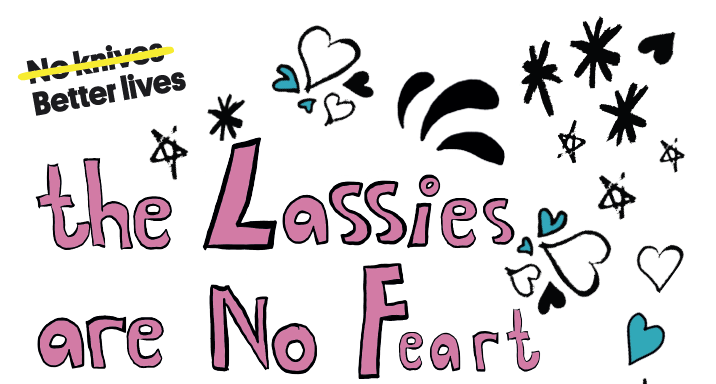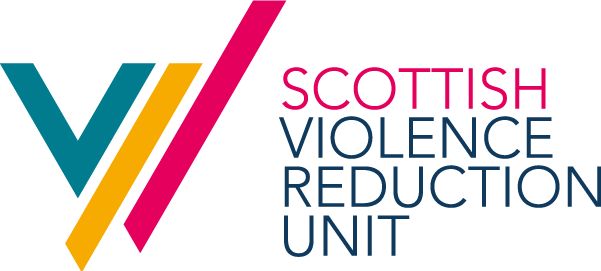Emily Beever, Senior Development Officer at No Knives Better Lives, writes in this guest blog about a new report looking at the experience of violence for girls and young women.

YouthLink Scotland, alongside the SVRU and other national organisations, are partners in the Scottish Government’s Violence Prevention Framework, which aims to prevent violence from happening in the first instance. The newest report from the No Knives, Better Lives (NKBL) project aims to add more understanding on girls’ and young women’s experiences of violence to ensure we adopt a gendered lens to violence prevention.
Through speaking directly to young women, we learnt violence was woven into their lives, and that they were additional challenges that made it difficult to make positive choices to keep themselves and others safe.
Family ties
Young women were loyal to and protective of their families, which could lead to violence if their families were disrespected by peers. Disrespect towards families often had a sexist element. For young women, sticking up for your family by engaging in violence was seen as justified.
Families also played roles in accepting and promoting violence. Mums were particularly influential for the young women and were mentioned most often, though this could reflect the reality that most primary care-givers are women, rather than increased prevalence of violent attitudes in women.
“My mum was so happy when I hit [name].” (Young woman)
Intergenerational attitudes towards violence were hard to shift and practitioners said challenging values that were closely tied to their family was difficult.
“Because you can try and have those conversations and challenge that behaviour and that mindset, but it’s quite a hard one to get through because obviously the loyalty is with their family.” (Practitioner)
Social media
The way in which social media causes, promotes and normalises violence was clear for all young women we spoke to. Young women were both passive ‘viewers’ and active ‘producers’ of violent content. For many, violent videos were a form of entertainment, though the young women did have clear red lines on content they found unacceptable.
“I’m so used to seeing like videos like all the time, so it’s just got to the point where it just doesn’t [affect me]. I’m just seeing them all the time and I hear about it all the time. Like it happens too often. To like be like, oh, that’s a shame, because there’s like too much videos.” (Young woman)
Call to action
We want this report to be a call to action for all those working with girls and young women, and who aim to prevent violence in Scotland. Young women need to be taken seriously and listened to by trusted and caring adults. We need to grow the options available to seek support early and effectively. Girls and young women must be at the centre of designing and delivering solutions to ensure that we prevent violence for everyone.
No Knives, Better Lives works in partnership with young people and practitioners to understand and address the causes and drivers of youth violence. No Knives, Better Lives is run by YouthLink Scotland, the national agency for youth work and the collective voice of the sector.
The full Lassies are No Feart report and young person’s version are available here.
The e-learning module is available here.
Get in touch with the NKBL team nkbl@youthlink.scot
The views expressed in guest blogs and in associated links belong to the authors and do not necessarily represent the views of the SVRU.
